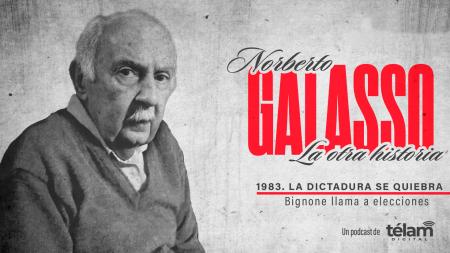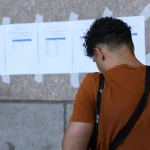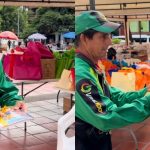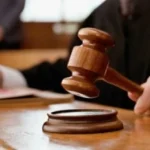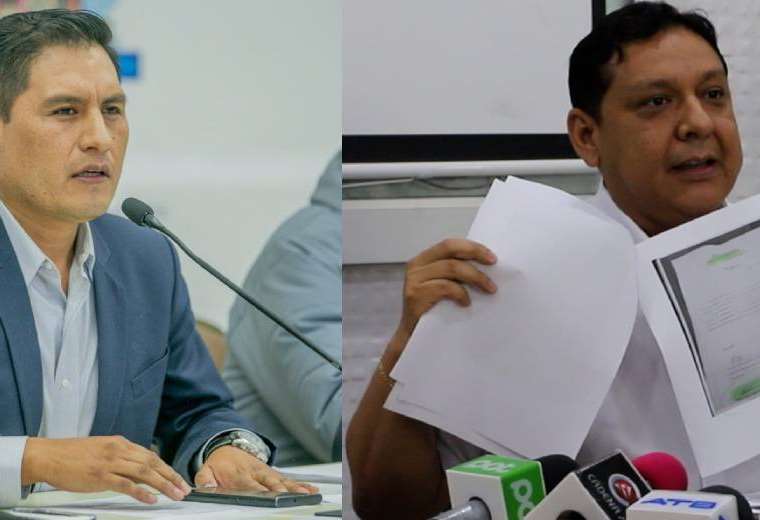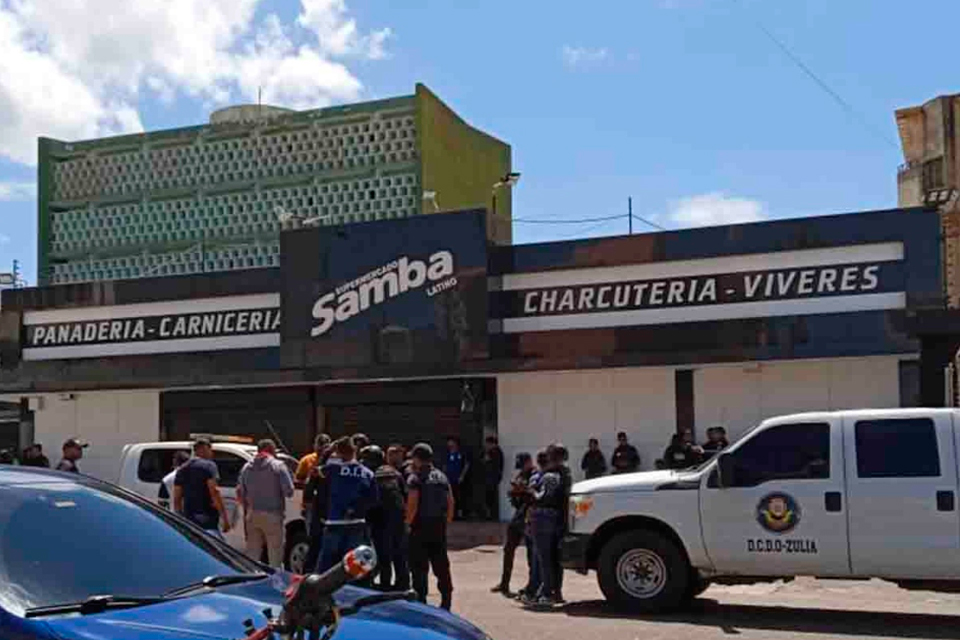the figure of Leopoldo Fortunato Galtieri It is important in the Military Junta because it is the one that triggers the attempt to rescue the Falklands. He goes to the United States. There is a version that Vernon Walters was practically certain that the United States was not going to intervene if Argentina tried to recover the islands because the Inter-American Treaty of Reciprocal Assistance (TIAR) was involved, which was the treaty in force in this matter since ’47.
Beyond this are the characteristics of Galtieri: a very conceited guy, who was also told about his majestic personality and thus was unleashed on April 2, 1982, the attempt to recover the Malvinas.
First Part (CREDITS: General production: Lorena Vazquez – Sound editing: Alejandro Sanz – Recording: Sebastián Siddi – Voiceover: Fabiana García – Cover: Kevin Liendo)
The cause was just, of course, but it was done very badly, with total ineffectiveness, with total disorganization, and all of this led to the defeat on June 14 of that year, where General Mario Benjamín Menéndez, who had been assured that the United States was not going to intervene in support of Great Britain and that it was not going to see any warlike actions, it found that it had to surrender to the British forces.
This meant the collapse of the military sector, which had carried out this tremendous tragedy of the March coup on March 24, 1976, characterized by carrying out a bloodbath in Argentina and a total surrender from the economic point of view.

Jose Alfredo Martinez de Hoz He had been the figure as Videla’s minister: he came from a family that already had 14 slaves in their house in the colony, and later one of its members was the founder of the Rural Society.
With this background, Martínez de Hoz was Videla’s minister for five years, then there was a brief period of Roberto Viola and then with Galtieri Roberto Alemann took over as minister, an appointment that at the time enabled the reading of “the return of the Chicago Boys” .
Now, after the defeat at Malvinas, some sectors of the Army seem to have supported Galtieri’s idea of continuing to try a fight that was completely unequal, but the idea that he should resign prevailed.
Second part. (CREDITS: General production: Lorena Vazquez – Sound editing: Alejandro Sanz – Recording: Sebastián Siddi – Voiceover: Fabiana García – Cover: Kevin Liendo)
At that moment, the total ineffectiveness of the Argentine Armed Forces, the strategic errors committed and a very severe criticism of everything that had occurred with the way in which the attempt to rescue the Malvinas had been carried out, began to become evident. .
Later, shortly after, on July 1, the Armed Forces understand that they must withdraw and are looking for a man to try to institutionalize the country, in an agreement with the political parties, and thus the general is appointed. Reynaldo Bignonewhich he assumed on July 1, ’82 with the idea of making a setback, an exit that would be as honorable as possible for the Armed Forces that had committed all the atrocities for several years.
This process is accompanied by the growth of opposition forces.

It would be necessary to remember that the great parties, Justicialista and Radical, had offered men to the Military Process to serve as mayors in several provinces. But this ends there and the opposition that is organized in the multiparty.
But, at the same time, the “Corriente de los 25” also emerged within the CGT, which was to lead Saul Ubaldini, hitherto unknown, and strikes began to harass the Government.

And then there is also the great fact of the opposition, heroic, tremendous, of the appearance of the Mothers of Plaza de Mayo with Azucena Villaflor, who was disappeared and with Hebe de Bonafini, and later other Mothers who heroically confronted the regime demanding for the lives of their children.
Already the year ’82 is plagued with movements and demonstrations. There is a “march for life” organized by all the human rights people.
Then there is a resistance march and in December there is a march for democracy, where the Multipartidaria manages to gather around 100,000 people.
In that march there is repression and in it a metal worker dies, Dalmiro Flores.
In other words, the Army, despite its attempt to retreat, continues to repress.

All this already leads to an untenable situation and Bignone he became the spokesman for the Army, the man who was going to give rise to the call for elections, which took place in February of ’83.
At the same time, Bignone issued a decree, which was later called “self-amnesty”, by which he affirmed that what was produced in those years will be judged by history and there will be no sanction or review of the events carried out in that period.
Of course, the political parties, especially radicalism, where it is emerging as an important figure Raul Alfonsin, they deny any validity to this self-amnesty.

One of the most important things that occurs under Bignone’s brief government is the appointment as Economy Ministers of Dagnino Pastore, who was one of the cast of economists of the establishment, later replaced by Jorge Wehbe, but the most important thing is the occupation of the Central Bank for Sunday Felipe Cavallo and Julio González del Solar, who carry out exchange insurance operations through which they nationalize the private debt of 15 billion dollars.
It is the private debt of the most important consortiums installed in the country, including Macri, for example, such as Socma, Supercemento, which through exchange insurance ensure the transfer of their debt to the Government, which would pay it years later.

This is a true delivery behind the back of the people of the private debt, which assumed already very important characteristics.
The year ’83 is characterized by permanent harassment by the unions with partial strikes.
In this case, it should be remembered that if part of the CGT had some complicity, as also happened with the Catholic Church, important union figures were disappeared, such as Marina Vilte of teachers, such as figures from the Pharmacy union, including the general secretary Jorge Di Pascuale.
In other words, in relation to the disappeared, it should be remembered that -as stated in the report of the investigative commission- 30% were workers; 15%, employees, and another 12%, students.

It was on these sectors that the establishment acted drastically, getting out of the way through the bloodiest repression of everything that bothered its objectives of excessive profits, reaching 30,000 disappeared in that period.
What is still denied by some sectors when there are possibly more than 30,000 because in many cases the families did not report the disappearance.
This dictatorship is coming to an end with the economic delivery of the country.
The external debt, which amounted to around 6,000 million dollars when they carried out the coup of ’76, grew six times and was close to 40,000 million dollars when they called for elections.
The situation becomes more and more difficult, the censure is general, and Bignone finally summons for October 30, ’83.

Two paths are taking shape: the path of resistance, which is the one marked by the Mother of Plaza de Mayo, which is represented by a figure that emerges from radicalism, which is Alfonsinwhich was not of the Balbinist line but of a certain renewal with social democratic overtones that posed to the Argentine people that it is necessary to leave the past behind and return to the Constitution of ’53, with the reading of the preamble to underline the need to close the scars produced by repression.
There is a version that runs in the political corridors, that the formula Luder-Bittel of the Justicialista Party would be entering into something like a Union-Military Pact as denounced by the radicals; that is to say, in a certain sense, accepting the proposal of self-amnesty that Bignone had formulated.
The elections take place on October 30 and the victory belongs to Alfonsín. For the first time the Justicialista Party loses in free elections.
Nearly 7 million odds for Alfonsín against 5 million 900 for the Luder-Bittel formula, which already evidenced the crisis that Peronism was experiencing since the death of its leader on July 1, ’74.
This is perceived in that Luder himself was not a very representative figure who had a link with the workers, or who could express the line of Peronism of ’45, but rather a conciliatory reformist figure who did not really get the support of the working class. strongly punished by the repression of those years.
Thus the radical formula Alfonsín-Martínez prevails and assumes the 10 of December of the year ’83.

We will not comment here on the Alfonsín government, which has some important first moments with the Trial to the Boardswhich is surprising because it is not common when there are coups: when they withdraw, in the government of Alfonsín the coup leaders (from 1976) are prosecuted.
When Alfonsín saw that the Armed Forces did not make the corresponding self-criticism, he initiated the Trial of the Juntas and even in the economic sphere, he appointed Bernardo Grinspun in the Ministry of Economy, who was a representative of small and medium-sized companies.
But then his difficulties overwhelm him and he must gradually withdraw from his initial proposals.
The period of General Reynaldo Bignone is an attempt by the Armed Forces to get out of the difficult situation they found themselves in to leave a country in crisis, totally in debt, with 30,000 missing and in a truly terrible situation.
This did not prevent Bignone’s cadre from being placed in the Military College until, later, Néstor Kirchner will retire.
The figure of a repressor did not correspond to be part of the figures that had to be remembered in the Armed Forces.
The figure of Bignone does not really acquire relevance and is associated with that call for elections and the attempt to put the rule of formal democracy into operation again, with all the limitations that it itself has.
